
When I was twelve years old, in 1969, my family moved to Reston, Virginia. It was a planned community near Washington, D.C.—a suburban utopia where C.I.A. agents and Foreign Service officers like my father could raise their families. I hated Reston, and hated living in the United States. We had stayed in Northern Virginia for part of the previous year, between stints in Taiwan and Indonesia. During our time there, Martin Luther King, Jr., was assassinated—one of the few times I saw my parents cry. While I was out selling “I Have a Dream” stickers in King’s memory to support the Poor People’s Campaign, a neighbor sicced his dogs on me.
I ran away from home several times, and so my mother and father devised a solution for my restlessness: they sent me to stay for a year with an aunt and uncle in Liberia. I spent most of it ducking my chaperons to travel into the Liberian wilderness and around East Africa, and when the time was up I told my parents that I didn’t want to leave. I noted that a Swiss adventurer had passed through Monrovia on his way to crossing the Sahara by camel and had invited me to join him. My parents pointed out that I hadn’t yet finished middle school. Crestfallen, I went back home.
I got into more trouble as I entered high school, mostly for drugs; I did acid and pot, like everyone else, but a girl once shot me up with heroin before archery class. Several kids I knew died from overdoses. After that, my parents decided to move again, and began looking for a calmer place to live. My father took early retirement from his Foreign Service job—thinking, he often said later, that he needed to “save me.” But he and my mother were also trying to save their marriage, which had become increasingly strained during twenty years of moving around the world.
Dit verhaal komt uit de January 15, 2024 editie van The New Yorker.
Start your 7-day Magzter GOLD free trial to access thousands of curated premium stories, and 9,000+ magazines and newspapers.
Al abonnee ? Inloggen
Dit verhaal komt uit de January 15, 2024 editie van The New Yorker.
Start your 7-day Magzter GOLD free trial to access thousands of curated premium stories, and 9,000+ magazines and newspapers.
Al abonnee? Inloggen
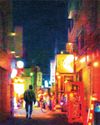
Hatagaya Lore Bryan Washington
We moved to Tokyo from Dallas because of my husband's job, an unexplainable tech gig.
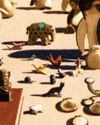
A MATTER OF FACTS
On the loss of two sons.

OPEN SECRET
Why did police let one of America's most prolific predators get away for so long?

BEYOND THE CURVE
In medicine and public health, we cling to universal benchmarks—at a cost.

Richard Brody on Pauline Kael's "Notes on Heart and Mind"
When Pauline Kael joined The New Yorker’s staff as a movie critic, in January, 1968, the world of cinema was undergoing drastic change.
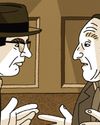
CHORAL HISTORY
“The Alto Knights.”

THE ELEMENTS OF STYLE, 2025
Reliable news coverage has never been more important than it is now. Journalists must remain vigilant and rigorous in the face of a second Trump Administration. To help them do so, we are releasing an updated version of Strunk and White’s “Elements of Style.” Please refer to the following examples when writing and reporting, for as long as that’s still allowed.
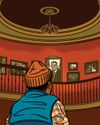
CHARACTER STUDIES
“Purpose” on Broadway and “Vanya” downtown.

DO YOU KNOW JESUS?
Why the Gospel stories won’t stay dead and buried.
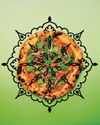
HOME SLICE
The making of an Indian American specialty.
